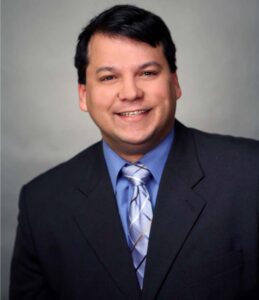Reunification Program
New Family Reunification Program
by Jose Enrique Perez
The Biden Administration just weeks ago announced that the United States is making it easier for eligible individuals from El Salvador, Guatemala, Honduras, Colombia, Cuba and Haiti to be reunited with family in the United States. This is the latest example of the Biden Administration’s effort to expand lawful pathways and offer alternatives to dangerous and irregular migration. The Department of Homeland Security created new family reunification parole (FRP) processes for El Salvador, Guatemala, Honduras and Colombia, and is updating family reunification parole processes for Cuba and Haiti. These processes will allow vetted individuals with approved family-based petitions to be paroled into the United States, on a case-
by-case basis. This program tries to complete the administration’s goal to manage regional migration safely, orderly, and humanely.
Family Unity Goal
 The new processes are for certain nationals of Colombia, El Salvador, Guatemala, and Honduras, whose family members are U.S. citizens or lawful permanent residents, who are the beneficiaries of an approved family-based petition (Form I-130) whose visas are not yet available on the Visa Bulletin. These new processes complement existing processes for Cuban and Haitian nationals as well.
The new processes are for certain nationals of Colombia, El Salvador, Guatemala, and Honduras, whose family members are U.S. citizens or lawful permanent residents, who are the beneficiaries of an approved family-based petition (Form I-130) whose visas are not yet available on the Visa Bulletin. These new processes complement existing processes for Cuban and Haitian nationals as well.
Certain nationals of these countries who are beneficiaries of an approved Form I-130, Petition for Alien Relative may be eligible to be considered for parole under the new processes. Qualifying beneficiaries must be outside the United States, meet all requirements, including screening, vetting and medical requirements, and must not have already received an immigrant visa.
Nationals of these countries may be considered for parole on a case-by-case basis for a period of up to three years while they apply to become a lawful permanent resident pursuant to their approved I-130 petition.
The U.S. Government will deliver timely and efficient authorization for those approved and vetted to travel. Individuals paroled into the U.S. under these processes are eligible to apply for work authorization.
Individuals with approved Form I-130 petitions often need to wait several years for an immigrant visa to become available. To support family unity and to discourage irregular migration, DHS will authorize parole on a case-by-case basis to expeditiously reunify families with approved petitions.
Facilitating Orderly Entry Goal
The processes begin with the Department of State issuing an invitation to the petitioning U.S. citizen or lawful permanent resident family member whose Form I-130 filed on behalf of a Colombian, Salvadoran, Guatemalan, or Honduran beneficiary has been approved.
Only an invited petitioner can initiate the process by filing a request on behalf of the beneficiary and their eligible family members to be considered for advance travel authorization and parole.
When an immigrant visa becomes available, the beneficiary may apply to become a lawful permanent resident through adjustment of status in the U.S.
The Biden Administration has said that this is one of the lawful pathways that families can access rather than placing themselves at the mercy of smugglers to make the dangerous journey or waiting many years to be reunited with qualified family members. Non-citizens who do not use this process or other lawful, safe, and orderly pathways and attempt to enter the United States unlawfully will face tougher consequences, including removal, a minimum five-year bar on admission, and potential criminal prosecution for unlawful reentry.
You should remember that this article is not intended to provide you with legal advice; it is intended only to provide guidance or information about immigration issues. Furthermore, the article is not intended to explain or identify all potential issues that may arise in connection with
this form. Each case is fact-specific and therefore similar cases may have different outcomes.
I represent individuals involved in many areas. If you have any questions or concerns about a case or potential case, you can call me at (315) 422-5673, send me a fax at (315) 466-5673, or e-mail me at joseperez@joseperezyourlawyer.com. The Law Office of Jose Perez is located at 659 West Onondaga Street, Upper Level, Syracuse, New York 13204. Now with offices in Buffalo and Rochester as well!!! Please look for my next article in the October edition and stay safe, get vaccinated or boosted and stay away from the Virus. In addition to our current practice of Personal Injuries, Work Accidents, Social Security and Immigration, we now also practice Criminal, Traffic, Family, DWI and Divorce.

